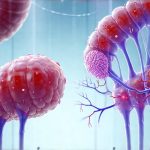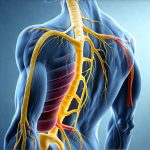The intricate connection between our digestive system and nervous system is often underestimated. We typically think of gut problems as…well, gut problems – something localized to the abdomen. However, increasingly, healthcare professionals are recognizing that many chronic digestive issues aren’t solely gastrointestinal in origin; they can be manifestations of underlying neurological conditions or exacerbated by neurological dysfunction. This bidirectional relationship, often referred to as the gut-brain axis, is a complex communication network involving nerves, hormones, immune cells, and even the microbiome – the trillions of bacteria residing in our digestive tract. Ignoring this interconnectedness can lead to misdiagnosis and ineffective treatment plans, leaving individuals suffering needlessly.
Understanding how neurological problems can present as digestive issues is crucial for both patients and healthcare providers. Symptoms like chronic bloating, unexplained nausea, persistent constipation or diarrhea, abdominal pain not relieved by typical remedies, and even changes in appetite can sometimes signal a deeper neurological issue rather than simply a digestive disorder. This isn’t to say every instance of these symptoms points to the brain – far from it! However, when these symptoms are persistent, resistant to conventional treatment, or accompanied by other neurological signs (like tremors, cognitive changes, or mood disturbances), exploring a neurological component becomes essential. The goal is not to self-diagnose but to advocate for thorough investigation and consider a broader range of possibilities. When gut symptoms point to nerve issues, it’s vital to seek expert evaluation.
The Gut-Brain Axis: A Two-Way Street
The gut-brain axis isn’t a one-way street where the brain dictates digestive function. It’s a dynamic, continuous dialogue. Neural pathways like the vagus nerve directly connect the gut to the brain, allowing for rapid communication. But it goes further than that – our microbiome profoundly influences brain health, and conversely, our mental state impacts gut motility and permeability. – The enteric nervous system (ENS), often called the “second brain,” is embedded within the walls of our digestive tract. It operates largely independently but constantly communicates with the central nervous system (CNS). – Hormones released from the gut influence mood, appetite, and stress response. – Immune cells in the gut play a crucial role in both digestive health and neurological function. This constant interplay explains why stress can cause stomach upset, or why anxiety might lead to irritable bowel syndrome (IBS) flare-ups. Disruptions in this axis – whether through chronic stress, poor diet, inflammation, or neurological disorders – can manifest as a wide range of digestive symptoms. Symptoms that point to a misaligned digestive clock can disrupt this delicate balance.
Neurological conditions that directly impact the vagus nerve or other neural pathways controlling digestion can significantly disrupt gut function. For example, Parkinson’s disease often presents with constipation years before motor symptoms become apparent, suggesting early involvement of the ENS. Similarly, patients with multiple sclerosis (MS) frequently experience digestive issues like altered bowel habits and abdominal pain due to neurological damage affecting gut motility and sensation. These aren’t simply side effects of medication; they are integral parts of the disease process. Recognizing this connection allows for a more holistic approach to patient care, addressing both the neurological and gastrointestinal aspects of these conditions. When digestive issues need more than blood work, further investigation is crucial.
The microbiome’s role is also paramount. Emerging research demonstrates that imbalances in gut bacteria (dysbiosis) can contribute to neuroinflammation – inflammation within the brain – which has been implicated in various neurological disorders like depression, anxiety, and even neurodegenerative diseases. A disrupted microbiome can also increase intestinal permeability (“leaky gut”), allowing inflammatory molecules to enter the bloodstream and potentially impact brain function. Essentially, a healthy gut microbiome is vital for maintaining a healthy brain, and vice versa.
Neurological Conditions Mimicking Digestive Disorders
Several neurological conditions can present with prominent digestive symptoms that may initially be mistaken for purely gastrointestinal problems. Parkinson’s disease, as mentioned earlier, often begins with constipation, sometimes decades before the characteristic tremors and motor deficits develop. This is because Parkinson’s affects the autonomic nervous system, which controls involuntary functions like digestion. – The loss of dopaminergic neurons impacts gut motility, leading to slowed transit time and difficulty eliminating waste. – Patients may also experience gastroparesis (delayed stomach emptying) contributing to nausea and bloating. Similarly, multiple sclerosis can cause a range of digestive symptoms due to the demyelination process affecting nerve signals in the gut. This can lead to altered bowel habits, fecal incontinence, abdominal pain, and difficulty swallowing. These aren’t simply side effects of medication; they are integral parts of the disease process. Checkpoints to review after a digestive health scare can help manage these conditions.
Another example is autonomic neuropathy, damage to the nerves that regulate involuntary body functions. This can occur as a result of diabetes, certain autoimmune diseases, or even side effects from medications. Autonomic neuropathy can disrupt digestive processes leading to gastroparesis, constipation, diarrhea, bloating, and nausea. – Diagnosis often requires specialized testing like gastric emptying studies and bowel motility assessments. – It’s important to differentiate autonomic neuropathy from other causes of similar symptoms through a comprehensive evaluation. Finally, migraine isn’t just a headache; it can frequently be accompanied by digestive disturbances. Many migraine sufferers experience nausea, vomiting, diarrhea, or constipation during the prodrome (early phase) or during the migraine attack itself. This is thought to be related to neurological changes affecting the vagus nerve and gut motility. Digestive issues after a sudden switch to clean eating can sometimes mimic other conditions, requiring careful evaluation.
Functional Neurological Disorders & Gut Symptoms
Functional neurological disorders (FNDs) are conditions where symptoms – such as weakness, tremors, or sensory disturbances – are real but cannot be explained by identifiable structural damage to the nervous system. They represent a significant diagnostic challenge because traditional imaging and tests often come back normal. Increasingly, there’s recognition that FND can manifest with prominent gastrointestinal symptoms, mirroring IBS or other digestive disorders. The underlying mechanism is thought to involve altered brain processing of sensory information from the gut. – Patients may experience abdominal pain, bloating, nausea, constipation, or diarrhea despite a lack of organic disease. – These symptoms are often exacerbated by stress and emotional factors.
The link between FND and gut symptoms is complex but likely involves several factors: 1) Altered interoception – difficulty accurately perceiving internal bodily sensations. 2) Catastrophizing – exaggerating the significance of digestive symptoms. 3) Conditioned learning – associating certain foods or situations with negative digestive experiences. – Treatment for FND typically involves a multidisciplinary approach including physiotherapy, psychotherapy, and sometimes medication to manage associated symptoms like anxiety or depression. It’s crucial to remember that FND is not “all in your head”; it’s a genuine neurological condition requiring specialized care.
Diagnostic Approaches & Considerations
When digestive issues are suspected to have a neurological component, a thorough evaluation is essential. This should begin with a detailed medical history and physical examination focusing on both gastrointestinal and neurological symptoms. – The healthcare provider will likely ask about the onset, duration, severity, and triggers of your symptoms. – They’ll also inquire about any family history of neurological or digestive disorders. Initial investigations often include standard gastrointestinal tests like stool analysis, blood tests, endoscopy, and colonoscopy to rule out organic causes of digestive symptoms. However, if these tests are negative or inconclusive, further neurological evaluation is warranted. This may involve: 1) Neurological examination assessing reflexes, coordination, sensation, and cognitive function. 2) Imaging studies such as MRI or CT scan of the brain to identify any structural abnormalities. 3) Autonomic testing to evaluate the function of the autonomic nervous system. When to ask for a motility scan and what it shows can be crucial in these cases.
It’s important to advocate for yourself and seek a second opinion if you feel your concerns aren’t being adequately addressed. A collaborative approach involving gastroenterologists, neurologists, and potentially psychiatrists or psychologists is often the most effective way to diagnose and manage these complex conditions. Furthermore, exploring dietary modifications and lifestyle changes like stress management techniques (yoga, meditation) can play a crucial role in improving both digestive and neurological well-being. Remember, recognizing the gut-brain connection is key to unlocking more effective and personalized treatment strategies.


















